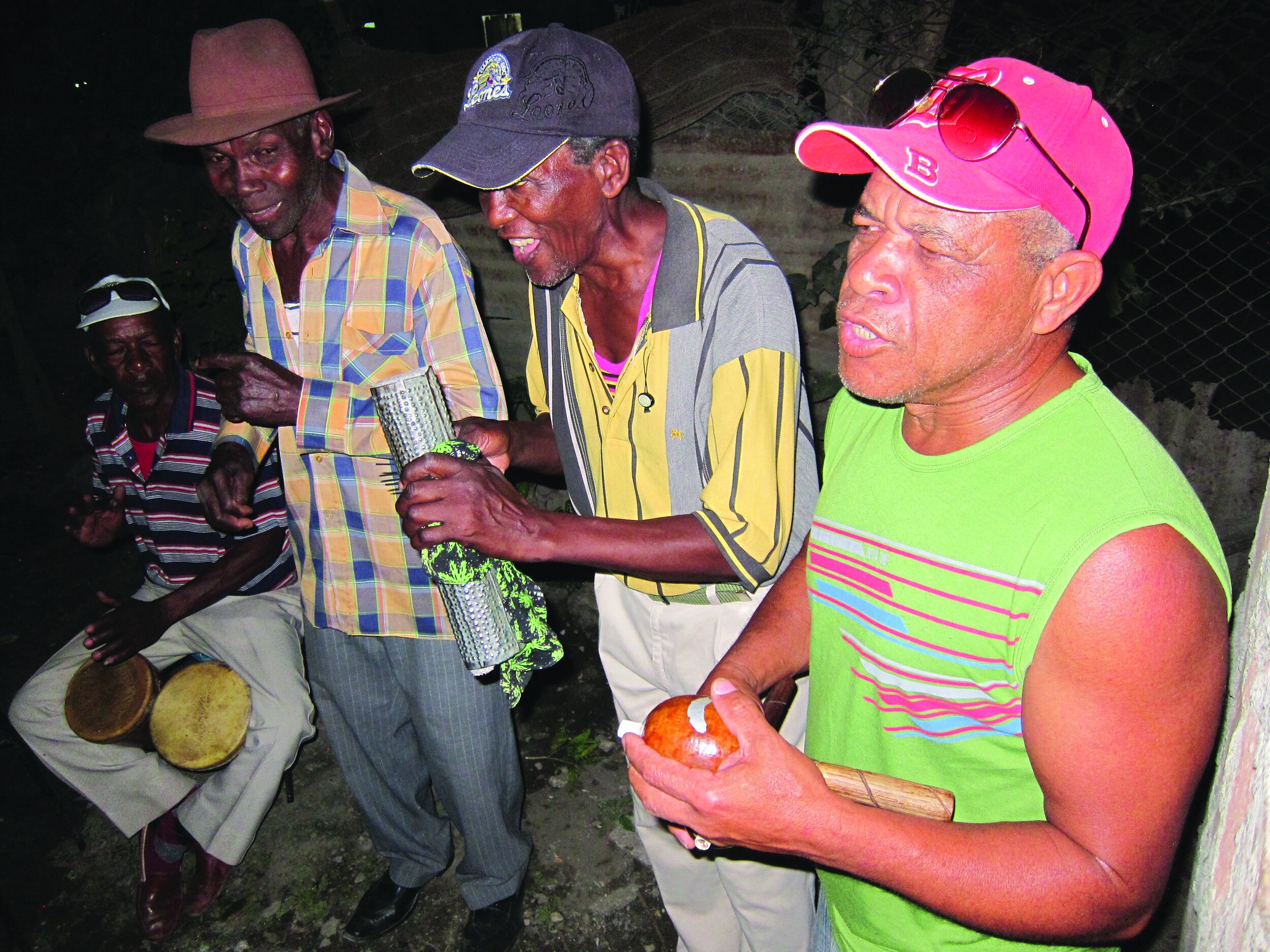Changüí: The Sound of Guantánamo
In Guantánamo, changüí means party. The very word changüí is derived from the Congolese word for party and it’s easy to hear why: This living musical tradition is a joyful bundle of hooks, riffs and foot-stomping choruses played for the sole purpose of celebration, togetherness and inclusivity.
Independent producer and music journalist Gianluca Tramontana, whose roots music expertise has been featured in numerous pieces for MOJO Magazine, Rolling Stone, NPR and BBC, has been visiting Cuba since the 1990s. On one such trip in 2017, he observed that of the precious little documentation there is of changüí, almost nothing had been recorded on location in the countryside or villages where the music continues to be performed, danced to, and enjoyed to this day. Tramontana spent several months in Cuba, traveling around Guantánamo capturing the music of changüiseros from the mountainous areas of Yateras, where changüí is said to have been born, to Guantánamo City, where it drifted in from the mountains in the early 1900s.
Back in New York, Tramontana shared some of the recordings with an old friend and colleague, four-time Grammy-winning producer Steve Rosenthal. Rosenthal, known for his archival and restoration work of Alan Lomax, Woody Guthrie and Les Paul, immediately recognized that Tramontana’s digital recordings were special — that they managed to capture the energy and excitement of the festivities happening in areas of the country not often explored. “Gianluca spent months in the countryside getting to know the people of the Guantánamo province,” producer Rosenthal points out, “so the musicians were completely at ease. We’re listening to a real snapshot of a unique gathering which makes any listener feel like they’re actually there”.
Artist Bios:
Family ties play a critical role in changüí. Bandleader, tres player and vocalist, Francisco “Mikikí” Hernández Valiente appears in multiple ensembles in The Sound of Guantánamo with his brothers and other fellow changüiseros. Alejandro “Popó” Moirán Gamboa - the leader of Popó y su Changüí - and his brothers learned from their father, a vocalist, and mother, a tres player. And 75-year-old Pedro Vera Pagán, the lead vocalist and tres player of Grupo Familia Vera learned from his now 97-year-old father, Eugenio. It is this lineage of Cuban culture, expressed in song and dance that is captured in these recordings.
Women play a central role in Changüí often hosting parties and venues where the music is played. While Cuban parents may not have wanted the life of a traveling changüisero for their daughters, the history of changüí in particular and Cuban music, in general, has its share of legendary women musicians. The Sound of Guantánamo collection includes performances by the all-female ensemble, Las Flores del Changüí, led by vocalist and tres player, Floridia Hernández Daudinot who follows in the tradition of her tres playing grandmother. Adding a fourth generation, Floridia’s daughter is the guiro player in the ensemble.
The ensemble Grupo Changüí de Guantánamo represents the urban tradition of Changüí. Its current band leader and lead vocalist, José Andrés Rodríguez Ramírez aka “El Sinsonte” is a remarkable reginero (a freestyle improviser of wordplay) who is able to improvise lyrics at length without ever repeating himself. The band traces its roots back to 1945 when the Veranes brothers were encouraged by a fellow bandleader to organize a formal ensemble. Grupo Changüí de Guantánamo is the rare ensemble that has toured outside of Cuba, appearing at the Smithsonian’s Center for Folklife and Cultural Heritage and at New Orleans Jazz and Heritage Festival.
The Sound Of Guantánamo showcases 90 year-old master changüisero and tresero Armando “Yu” Rey Leliebre. Yu’s contributions to the tradition of changüí cannot be overstated. “He was the connection to the history (of changüí) and was loved and cherished by the community and considered a link to their history” Tramontana explains, “they called him “desde las raíces” - from the roots.”
Yu was the co-founder of Grupo Estrellas Campesinas, an ensemble started in 1982 that plays the century-old early form of changüí. He was also a mentor to bandleader and singer Celso Fernández Rojas, known as “El Guajiro,” who fronts El Guajiro y su Changüí. Sadly, Yu passed away at 91; some months after these recordings were made, but his many songs and the lasting legacy of his music live on.
It is the celebration of this lineage and of the vibrant changüí culture, expressed nightly in song and dance, that is captured in Changüí: The Sound of Guantánamo.







